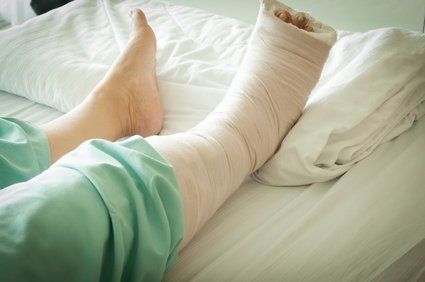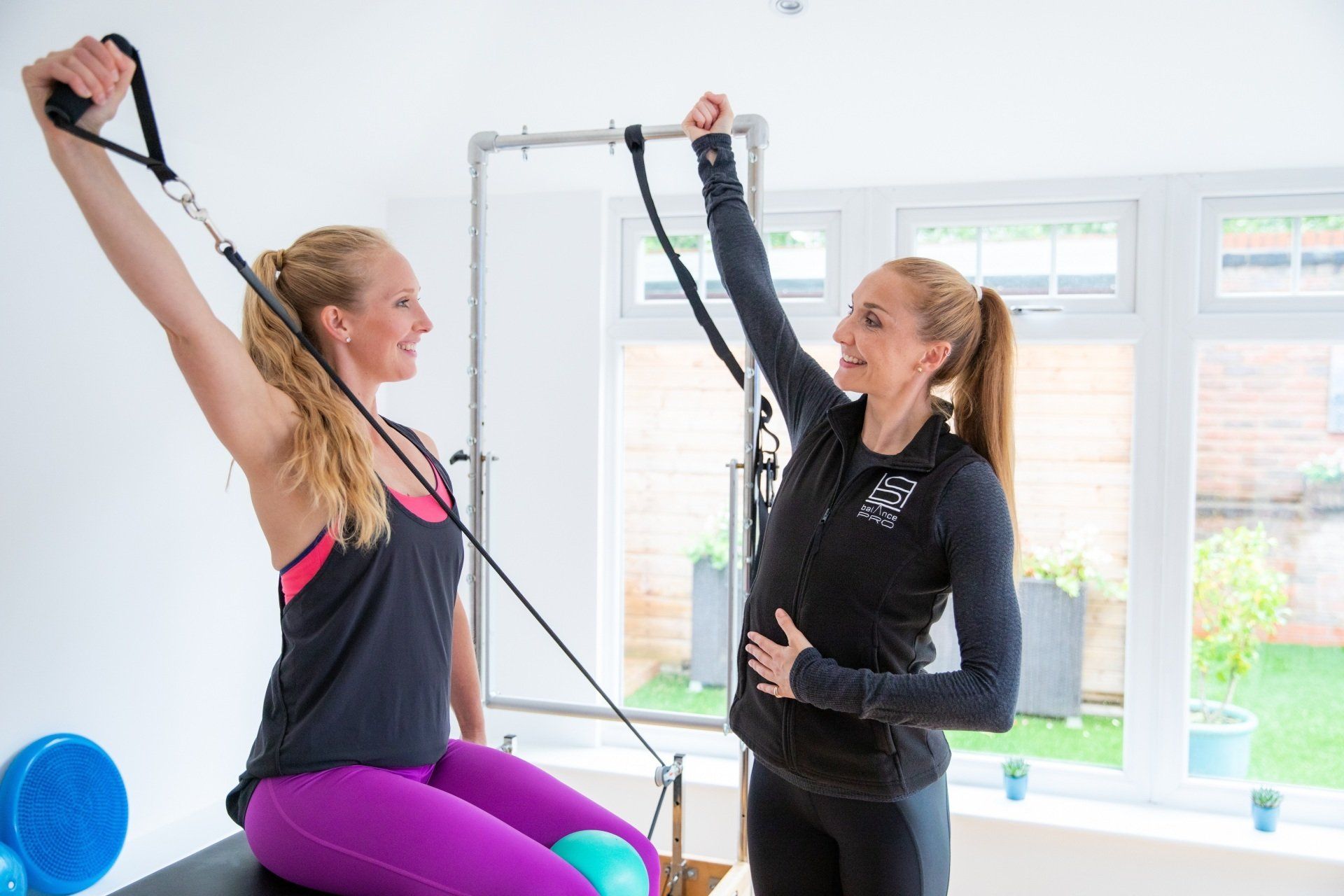What can you do pre surgery to prepare?
Catriona Fitchett • 22 September 2020
Here are some of my top tips to help make your recovery and post op experience as nice as it can be.

1) Prep your house and sleeping arrangements
But also get some feel-good food too. I lost over a stone in hospital and needed some calorie dense foods, but also needed some comfort food to make myself feel better.
Ready meals may be a good option depending if your partner/designated carer is a good cook or not 😉
Think about what your mobility will be like post-surgery and therefore are stairs an option? Generally, in hospital you will not be allowed home until an OT (occupational therapist) has seen you. They will assess your mobility and what you may need at home to enable you to cope better, however especially on the NHS they may not have every gismo available. I found the British Red Cross was great for hiring some mobility aids.
If it is a lower limb injury then maybe moving your sleeping set up down stairs would be better to avoid stairs. Maybe make sure there is a TV for you, make sure everything is in reach. Do you need a commode in your room? Do you need a frame over your regular loo to enable you to sit down and stand up? Do you need a seat in your shower or bath?
I know none of these things are particularly glamourous things to think about, but I promise it is far better to think about them before surgery when you are in good spirits and sane mind rather than struggle afterwards when you could be in pain, exhausted, frustrated and low.
2) Wheelchairs/crutches and mobility aids
Next up mobility aids 😊 Honestly, I have had that many surgeries (10 to be precise) that I set myself up properly before an op! One of my go to’s (especially again with lower limb surgery) is a good wheelchair. These generally are not issued as standard (especially if you are young & strong), as crutches are generally used.
Crutches are fine for nipping about in short spurts, but if you want to go on a family day out, or even do the supermarket shop with your partner then crutches are just not viable. I was in a knee brace (locked straight) for a really long time, so whilst at first you should be at home resting and recuperating, there is nothing more demoralizing than being stuck at home for any length of time.
There are many private wheelchair hire companies that will drop one to your door, but they can be costly. Again, I turned to the British Red Cross (They charge a nominal fee to cover the costs they incur). If you know what you need ahead of time you can order one in, to ensure it has the correct accessories.
https://www.redcross.org.uk/get-help/borrow-a-wheelchair?c_code=170460&c_source=google&c_name=&adg=wheelchair%20hire&c_creative=brand&c_medium=cpc&gclid=CjwKCAjwwab7BRBAEiwAapqpTJEVQpToeQDXuNdo_L2hXwS1N8BBa83Q0poGbjrEQq3o9eZ_TSrdcxoCqcQQAvD_BwE
Does it need a leg raiser?
Does it need to be self-propelled?
Again, these things may sound silly/unglamorous/ embarrassing, but I promise all these things make recovery more bearable. With my wheelchair I was able to go on days out, shopping, sit in restaurants knowing I was comfortable, and my leg was safe. In the early days post op I would tire easily, so at least in my wheel chair I was resting. There is no way I would have been able to do all of these things on crutches, & I would have been stuck at home & my mental health would have been worse.
Also think about crutches. You will be issued with these at hospital. But if you are on them for any length of time you may wish to have some gloves to prevent blisters (cycling and weightlifting gloves are good). You can also purchase reasonably cheaply some custom crutches. I had my own with polka dots, just to cheer myself up a little!
Think about what aids would potentially make your life easier post op and get them sorted before. It will make your life so much easier.
3) Cryotherapy
One of the big things to think about post op is cryotherapy systems (AKA ice). In my opinion it is one of the most pivotal elements post op to kick start the recovery process, or at least get you off to the best start possible. Fundamentally the ice system aims to reduce the amount of swelling. In hospital you will most likely be given something called a cryo cuff. This is a bucket/tub of ice water that is attached to the cuff (knee, hip, elbow etc) that wraps around the body part that you have had surgery on. This is great, but it is not the best.
I am not sponsored in any way or have no allegiance with this company, but I strongly believe Game Ready is one of the best systems out there. For all the detailed science please visit their website http://www.gameready.co.uk/
Some science-based benefits:
1. Decreases pain, muscle spasms, swelling
2. Reduces metabolic activity and cellular demand for oxygen to reduce tissue damage
3. Mimics muscle contractions, pumping oedema out of the injured area
4. Stimulates tissue healing
5. Increases blood flow and delivery of oxygen to the injury site
6. Optimises lymphatic drainage
A few noticeable benefits that I picked up were:
The water/ice stays cooler for longer compared to a cryo cuff
You can apply pressure as well as ice and an even pressure around the entire site/joint thanks to the brilliant different cuffs
You can program the machine to switch on at regular intervals for prescribed amounts of time, temperatures and pressure meaning you do not have to think about it and it works all through the night 😊
You can just leave the cuff on all the time and not have to worry about taking it off to re fil and then put it back on
To rent a system please visit the website.
After each operation I had these ready to have on immediately after my operation. After my transplant I think my Game Ready was on my leg 1 hour after leaving the recovery room. The swelling after this surgery was practically nonexistent.
The system does come at a cost, and for some I know it will be prohibitive. There are also other systems available, but for me the Game Ready has literally been a game changer.
4) Limbo
Quick and simple tip today for post-surgery prep. This is a super simple little tip, that I must have told 100 people about; and it has changed their life!!! (well changed their life whilst they have been in a cast or brace!)
Say goodbye to wrapping your cast in duct tape and a plastic bag to wash!! It is a super simple plastic covering for the limb that has a cast or bandage on that you need to protect from water. I don’t just mean splash protect, you can fully submerge it and the cast will remain bone dry. You can get them for kids and adults. Suddenly you can shower or bath super easily and even swim! Check them out at
https://limboproducts.co.uk/?gclid=CjwKCAjwwab7BRBAEiwAapqpTOIOoH4i5B8O-2Szl9dwKd-5XlptA-Kcplh6mTU1LQFqcJPmqUc6JhoCNt4QAvD_BwE
I had a brace and whilst I could theoretically remove the brace, I felt unsafe standing on one leg in the shower with no brace on. So I covered my brace and showered knowing that I could not slip and bash or knock my leg. They are not expensive either. Hurrah all round!
5) Physio/Chiro/Rehab specialist
This part is CRUCIAL. You may already have a physio, chiro or rehab specialist that you use. If you do not have one, then get yourself one. The NHS physio is great to a point, but nothing beats that 1:1 on demand specialist. Sometimes you can have many many questions after surgery, and you cannot always see your surgeon or assigned NHS physio and it can be comforting to call or e-mail your rehabilitator to answer any questions or queries you may have.
The best place to start to find someone good is your surgeon. They will generally have partners that they work with. I find that a really good relationship between your rehabilitator and your surgeon is key. So ask your surgeon who they work well with.
Go and see your rehabilitator BEFORE surgery. Often there is a lot of PREHAB that you can do prior to surgery meaning that your rehab after surgery can be quicker. Basically you want to be the best and strongest you can before surgery.
Once you have had surgery, the surgeon will advise when to start your rehab (in most cases it’s pretty soon after surgery). If you have sorted your rehabilitator you can get to work straight away and get recovered as efficiently as possible.

Benefits of Pilates Regular Pilates can improve posture, muscle tone, balance and joint mobility, as well as relieve stress and tension. For elite athletes, including dancers, Pilates can complement training by developing whole-body strength and flexibility, and help reduce the risk of injury. 1 Pilates is Whole Body Fitness Unlike some forms of exercise, Pilates does not over-develop certain parts of the body and neglect others. While Pilates training focuses on core strength, it trains the body as an integrated whole. Pilates workouts promote strength and balanced muscle development as well as flexibility and increased the range of motion for the joints. Attention to core support and full-body fitness, including the breath and the mind, provide a level of integrative fitness that is hard to find elsewhere. It is also a reason that Pilates is popular in rehab settings, as well as with athletes who find that Pilates is a great foundation for any kind of movement they do. 2 Pilates Is Adaptable to Many Fitness Levels and Needs Whether you are a senior just starting to exercise, an elite athlete, or somewhere in between, the foundations of Pilates movement apply to you. Building from core strength, focusing on proper alignment, and a body/mind integrative approach make Pilates accessible to all. With thousands of possible exercises and modifications, Pilates workouts can be tailored to individual needs. There are ways you can modify the exercises and even specific considerations for Pilates for men. This information can help you maximize your classes to achieve your goals, whatever they may be. 3 Pilates Creates Strength Without Bulk Long, lean muscles are the name of the game. In Pilates, you are not looking to build muscles for show. You are building toned muscles that work perfectly within the context of your body as a whole, and your individual functional fitness needs as you move through life. One way Pilates creates long, strong muscles is by taking advantage of a type of muscle contraction called an eccentric contraction. I don't really advise focusing on the aesthetical benefits of exercise, I prefer a client to FEEL the benefit, however aesthetics really are a great bi-product of Pilates. 4 Pilates Increases Flexibility In Pilates, you work toward a safe increase in length and stretch of the muscles and range of motion within the joints. You won't find quite as much "pretzel logic" in Pilates (as you might in yoga), but having a body that can stretch and bend to meet the flow of life is a realistic goal. I always say that strength without flexibility is a danger, and flexibility without the supporting strength is a danger. Luckily in Pilates we work on both in tandem creating a wonderful balance. 5 Pilates Develops Core Strength The core muscles of the body are the deep muscles of the back, abdomen, and pelvic floor. We rely on these muscles to support a strong, supple back, good posture, and efficient movement patterns. When our core is strong, the frame of the body is supported. Our neck and shoulders can relax, and the rest of our muscles and joints are free to do their jobs (but don't have to do more). Before someone moves an arm or leg, people with healthy backs (in contrast with those suffering from low back pain) automatically contract their core muscles, which wrap from the sides of the lower back around to the front. Therefore well-coordinated core muscle use, stabilizes the spine and helps create a firm base of support for virtually all day to day movement as well as more extreme movements required in certain sports. Jospeh Pilates referred to it as "the powerhouse" and really is at the "core" of all our work. Think of it as the foundations of a house. If they are shonky...why would you build the house on them? You would make sure they were solid before you build. It should be the same with your core. Don't build a sky scraper on a soggy foundation, it will never end well. 6 Pilates Improves Posture Good posture is a reflection of good alignment that is supported by a strong core. It is a position from which one can move freely. Starting with Pilates movement fundamentals and progressing through mat and equipment exercises, Pilates trains the body to express itself with strength and harmony. People who practice Pilates often have excellent posture. It's also a reason why people do Pilates for back pain. People often ask me if I can make them taller....sadly I cannot...however I can make them appear taller!!!! And that is practically the same thing. 7 Pilates Increases Energy It might seem like a paradox, but the more you exercise, the more energy you have. The more energized you are, the more you'll feel like doing your exercise routine (to a point, of course). Pilates gets the breath and circulation moving, stimulates the spine and muscles, and floods the body with the good feelings one gets from exercising the whole body. To quote one of my favorite movies..."exercise gives you endorphins. Endorphins make you happy". Who doesn't need that in their lives? 8 Pilates Promotes Weight Loss and Long, Lean Appearance If you practice Pilates regularly, it will change your body. Known for creating long, strong muscles and a leaner look, Pilates improves your muscle tone, balances musculature, supports beautiful posture, and teaches you to move with ease and grace. All of these things will make you look and feel very fit. If you want to lose weight, the formula for weight loss remains the same: Burn more calories than you take in. As a full-body fitness method, Pilates help will help you do that. Pilates will tone and burn calories and can include cardio work (despite many people thinking it is not cardio workout), but if you crave other aerobic activity I can advise on some aerobic work to compliment your training based on level and injuries etc 9 Pilates Increases Awareness — Body/Mind Connection Joseph Pilates was adamant that Pilates (or "contrology" as he called it) was about "the complete coordination of body, mind, and spirit." This is a secret of Pilates exercise. When we practice each movement with our total attention, the body and mind unite to bring forth the most benefit possible from each exercise. The Pilates principles — centering, concentration, control, precision, breath, and flow — are key concepts that are used to integrate body and mind. Often after a session clients tell me they feel mentally refreshed...why? Because to do Pilates correctly you need to immerse your mind in the movement you are doing and switch off from everything else whizzing around in your head. An hour for you...to focus on you...to just park everything else going on in your life for a short while. 10 There Are Many Ways to Learn Pilates The ever-growing popularity of Pilates has put it on the map, which is so great for you guys as there are just so many different ways to start! Joining zoom classes, group mat classes, private mat classes, group reformer, private reformer...in every different corner of the earth you will find some kind of Pilates, so there really is no excuse!! Plus you can use plenty of kit in Pilates but you can also use none! You do not require ANY kit to start!🙌 There is an option to suit every budget and every life style. Pilates is incredibly inclusive and we really are a nice bunch...I promise! So do a google search in your area and get started today!
